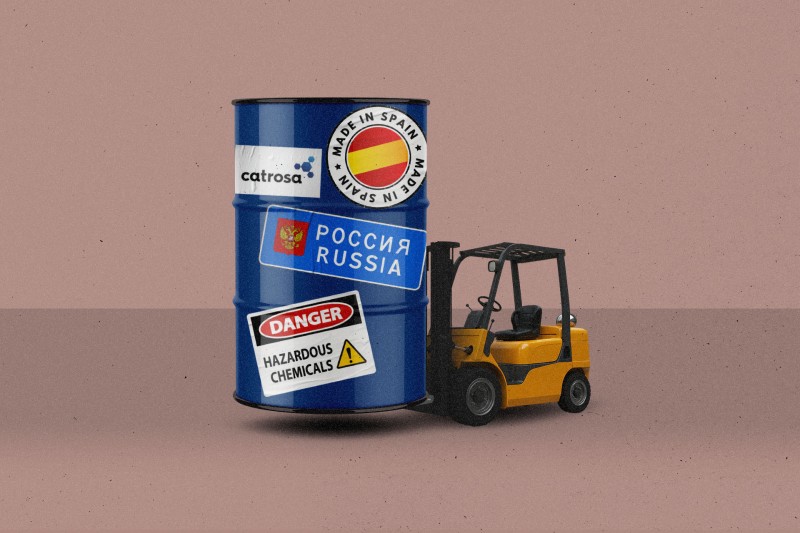The 32 shipments Catrosa Reactiv received from Scharlab contained 14 chemicals worth $15,000, all subject to EU export bans from April 2022 to June 2023 due to their potential contribution to the enhancement of Russia’s defence, security, and industrial sectors. They included $8,200 worth of NMP, the same solvent discovered at the Barcelona port, plus $5,800 worth of isopropanol and $2,550 of hydrogen peroxide.
The shipment made to Catrosa Reactiv from Complexe Sancu, the Spanish wine export company run by Maria Oleinikova’s children, contained around $3,650 worth of sodium hydrogen carbonate — also known as sodium bicarbonate, or baking soda. But despite its benign uses, the chemical was prohibited for export from the EU to Russia in April 2022 under the category of “goods which could contribute to the enhancement of Russian industrial capacities.”
‘Europeans Don’t Have the Infrastructure to Check’
Experts say that the EU’s customs systems are insufficient to deal with the bloc’s extremely broad sanctions on chemical exports to Russia, making it easy for shipments like the ones from Spain to slip through the net.
In international shipping, exporters label their goods using broad group identifiers known as HS Codes, which can cover a wide range of products including both banned and permitted substances. This means that it is possible to export a chemical under an HS Code that does not identify the presence of a specific banned substance.
Elina Ribakova, a senior fellow at the Peterson Institute for International Economics, a think tank based in Washington, D.C., said that HS Codes including sanctioned products are supposed to be flagged as high risk and checked more closely by customs officials.
But in practice, she said, this doesn’t always happen: “The question is whether the product is correctly classified under its appropriate HS Code and whether it is actually being checked.”
Even though the EU and Spain have created additional code numbers designed to add further detail to the international HS Code categories, Ribakova said it’s still “very hard to pin down a product” as they tend to be grouped.
“Europeans don’t have the infrastructure to check more holistically something that is not a nuclear or very specialized weapon,” she told OCCRP, adding that these limitations make it “relatively easy” to export sanctioned products.
In the case under investigation in Spain, exporters mixed batches of sanctioned chemicals inside larger shipments of legal substances, or listed false destinations on customs paperwork, such as Armenia and Kyrgyzstan, to disguise the fact that shipments were headed for Russia, investigators told OCCRP.


Dining and Cooking